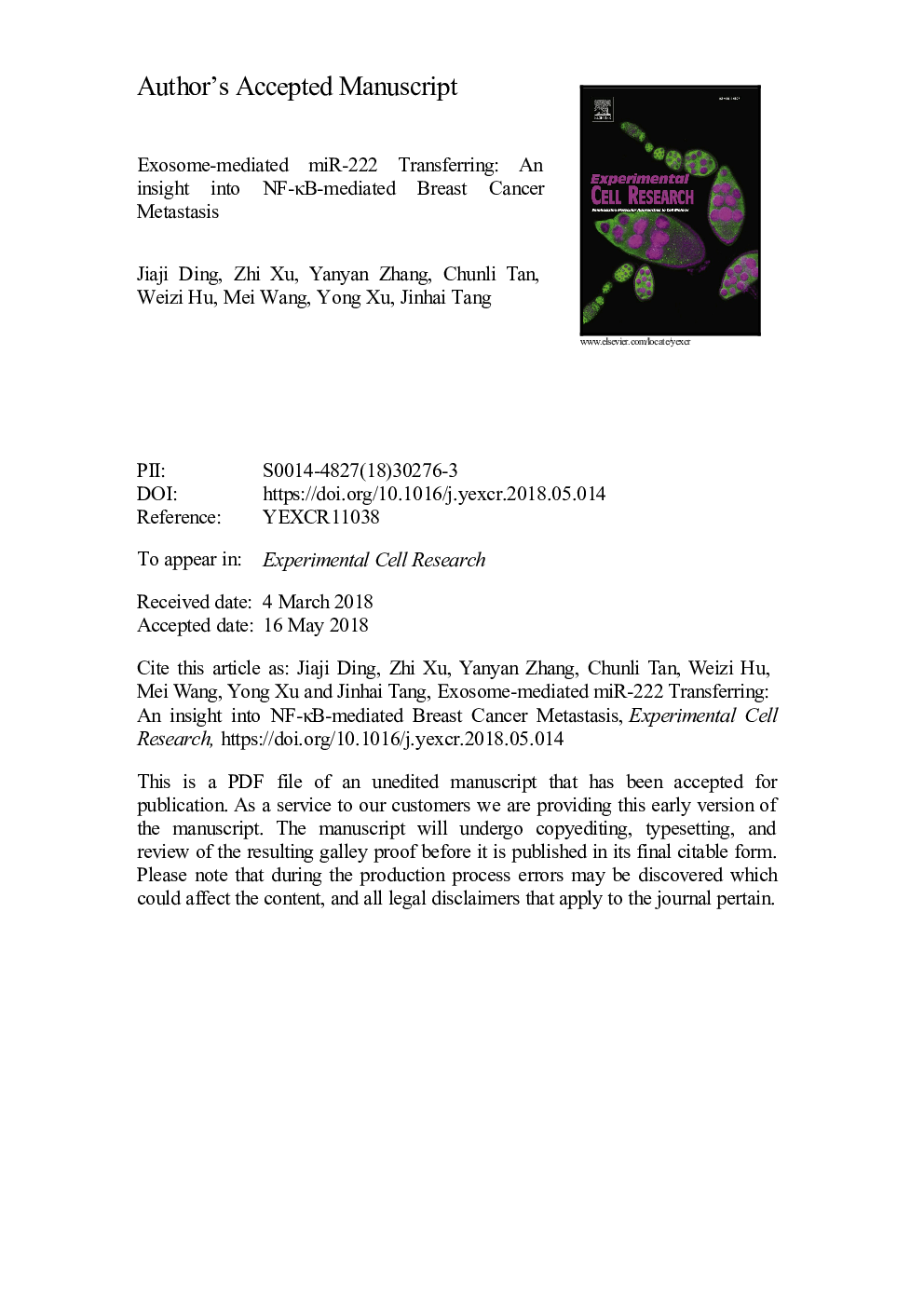| Article ID | Journal | Published Year | Pages | File Type |
|---|---|---|---|---|
| 8450424 | Experimental Cell Research | 2018 | 32 Pages |
Abstract
The subtypes of distant-organ metastasis led to treatment failure and poor prognosis are major obstacles in the management of patients with advanced breast cancer (BCa). Emerging evidences demonstrated that exosomes act as mediators for intercellular communication between various types of cells in the local tumor microenvironment. The present study aims to investigate whether BCa-derived exosomes are capable of cell-cell transferring miR-222 for BCa metastatic progression. Results showed that exosomal miR-222 is highly expressed in BCa patients with lymphatic metastasis. Consistently, the elevated levels of exosomal miR-222 are closely correlated with the high aggressivity of BCa cell lines. miR-222 promoting the aggressivity of BCa cells was confirmed in vitro and in vivo. Mechanistically, miR-222 directly targets PDLIM2, a tumor suppressor gene, leading to activation of NF-κB signal pathway. In conclusion, the levels of exosomal miR-222 are correlated with BCa metastatic progression. Exosome-transferred miR-222 promotes migration and invasion of BCa cells. miR-222 contributes to tumorigenicity of BCa cells through down-regulation of PDLIM2 and consequently activating NF-κB.
Keywords
Related Topics
Life Sciences
Biochemistry, Genetics and Molecular Biology
Cancer Research
Authors
Jiaji Ding, Zhi Xu, Yanyan Zhang, Chunli Tan, Weizi Hu, Mei Wang, Yong Xu, Jinhai Tang,
